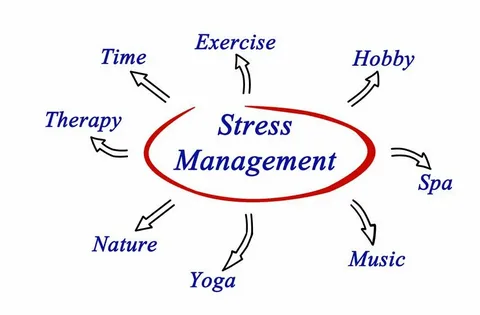Your body’s reaction to life changes is stress. There is no way to avoid stress since life is full of constant change. This includes everything from small, ordinary changes like travelling from home to work to significant life upheavals like marriage, divorce, or the loss of a loved one. 1 Despite the fact that everyone is unique, there are certain common sources of stress that many individuals encounter.
Causes
The term “stressor” refers to a variety of causes that might cause Stress Management Therapy. Due to the fact that everyone’s perspective of what is “stressful” is based on their own experiences with what they encounter in life, a scenario may be perceived as “stressful” by one person but just “difficult” by another (based on their own unique combination of personality traits, resources, and habitual thought patterns).
Simply said, what one person perceives as unpleasant may not be seen by another person as stressful. Nevertheless, several circumstances can raise the risk of burnout and tend to make most individuals feel more stressed. We are more likely to feel stressed, for instance, when we are faced with demanding circumstances but have limited control or options.
Is All Stress Harmful to Health?
There are many different kinds of stress, and not all of them are bad. For instance, eustress is a healthy sort of stress. But the kind of harmful stress that is most frequently reported in the news is chronic stress, which has been related to numerous major health problems. 1 While managing or removing bad stress is something we strive for; we also want to maintain beneficial types of stress in our lives to keep us energized and alive. But if we experience too much stress in our life, even “good” stress can increase our levels of stress to the point that we feel overwhelmed or our stress response is activated for too long.
Is There a Way to Be Less Affected by Stress?
You can reduce some of your stress by regularly using stress management techniques, and you can strengthen your ability to cope with in the future. There are various things you might attempt, such as going for a walk in the morning, keeping a journal in the evening, or simply creating more time for friends. The key is to choose something that complements your lifestyle and personality so that it is simpler to maintain.
The importance of managing stress
You run the danger of jeopardizing your overall health if you’re under a lot of stress. It limits your capacity for clear thinking, efficient functioning, and enjoyment of life. You might think there is nothing you can do to reduce stress. There will always be bills to pay, less hours in the day than there are bills to pay, and demanding work and family duties. But contrary to what you may believe, you have a lot more power.
Ways to Manage Stress
Even high levels of stress can be a normal part of life in the wake of a traumatic event or a significant disease, job loss, death in the family, or other difficult circumstance. It’s common for a while for you to feel depressed or apprehensive.
Consult your doctor if you experience depression or anxiety for more than a few weeks or if it starts to affect your daily life at home or at work. Other techniques like therapy and medication can be helpful.
How can we handle stress in healthy ways?
Stress helps us react rapidly to threats and stay safe, which is an important function of stress. Long-term stress exposure, however, may result in deteriorating physical health or problems with mental health (such as anxiety and depression). There is a lot of evidence to suggest that being under more it harder to handle physical disease. While no one can completely escape stress, there are healthy methods to deal with it that will improve your ability to recover.
Eat and drink to optimize your health. Some people will overeat or drink alcohol in an effort to relieve stress. In the short term, these acts could appear to reduce stress, but they could actually make things worse.
Exercise regularly. Consider non-competitive aerobic activity, weightlifting, or movement practices like yoga or Tai Chi, and make sure your goals are realistic. Endorphins are organic chemicals that naturally make you feel better and keep a positive outlook.
Study and practice relaxation techniques. Every day, taking a moment to unwind can help you manage your stress and shield your body from its negative consequences. Numerous methods are available, including deep breathing, visualization, progressive muscular relaxation, and mindfulness meditation. There are numerous websites and mobile applications that offer instructions on these approaches; while some need a fee for download, many are free.
Reduce triggers of stress. If you’re like most people, you could find that you have too many obligations and not enough free time in your life. These requirements, for the most part, are ones we chose. By using time-management techniques like prioritizing, pacing yourself, defining priorities, and scheduling time for self-care, you may make more time available to you.
Read More : The Effects of Cholesterol Levels & on Good Health






















![To Increase YouTube Subscribers Must Use These Service Provider [New]](https://businessleed.com/wp-content/uploads/2022/11/To-Increase-YouTube-Subscribers-Must-Use-These-Service-Provider-New-360x180.jpg)













